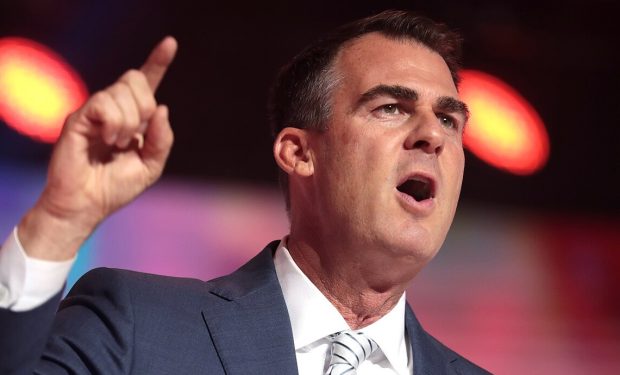Oklahoma Governor Kevin Stitt issued an executive order that calls on state agencies and higher education to review their Diversity, Equity, and Inclusion (DEI) practices. Stitt backed up the move not by slamming diversity, but instead by calling diversity an “asset” to “celebrate.”
In back to back tweets, Stitt wrote that “Diversity is an asset that shouldn’t be abused to advance a political agenda” and vowed that Oklahoma — 73% White according to the 2020 census — will “celebrate our diversity without the DEI bureaucracy.”
Many of Stitt’s constituents are applauding the move, as DEI initiatives across the nation have come under fire on campuses and in corporations. (The Republican Governor’s post was shared to the nearly 900K followers of anti-DEI athlete Riley Gaines with approval.)
We’ll celebrate our diversity without the DEI bureaucracy.
— Governor Kevin Stitt (@GovStitt) December 13, 2023
My new executive order takes DEI politics out of higher ed and state agencies — because Oklahomans deserve a merit-based system that ensures equal opportunities for everyone.
Learn more: https://t.co/8QQR1Ip6np
One of Stitt’s commenters on X expressed the belief — common in anti-DEI measures and embraced by Stitt — that no further incentive is needed to rebalance racial and gender inequities built into society for centuries, writing:
“You can’t leave DEI apparatus in place to be abused by liberals later on. Trust in the truth of meritocracy. It rewards the worthy no matter their sex, skin color, religion, etc. Merit is the best DEI program there is. No other can compare and no other is needed.”
Yet ample evidence exists that says meritocracy, while desirable, can’t function effectively when hobbled by systemic and institutional prejudices built into the societies over time. And while this endemic inequality is generally acknowledged to be a problem, Stitt and many others assert that DEI mandates aren’t the answer — and that bureaucratic enforcement of DEI delivers poor results that ultimately don’t increase fairness.
Stitt takes advantage of a shift in public perception around DEI, with even its most fervent proponents like Larry Fink of BlackRock seeming to — at least publicly — deprioritize the measures.
It’s a different environment from back in 2020, when billionaire Mark Cuban‘s company had articles written about it for pushing DEI, with one job listing saying it would “only consider those who graduated from a ‘public college/university/junior college or any HBCU [historically black colleges and universities],’ according to the job posting.”
Cuban, for his part, has stuck with the idea that diversity is an “asset” — as Stitt puts it — with the billionaire inviting people to call him “WOKE” if they want, saying he just calls diversity “good business.”
